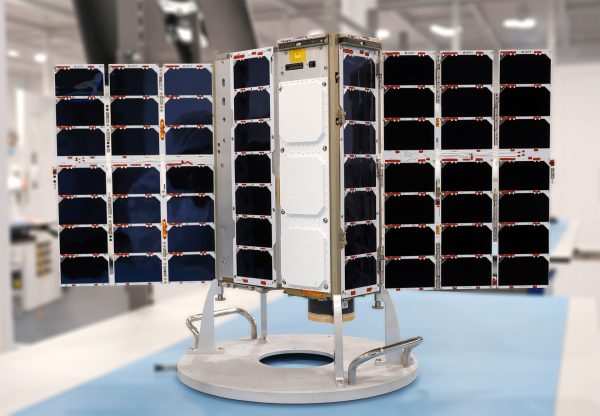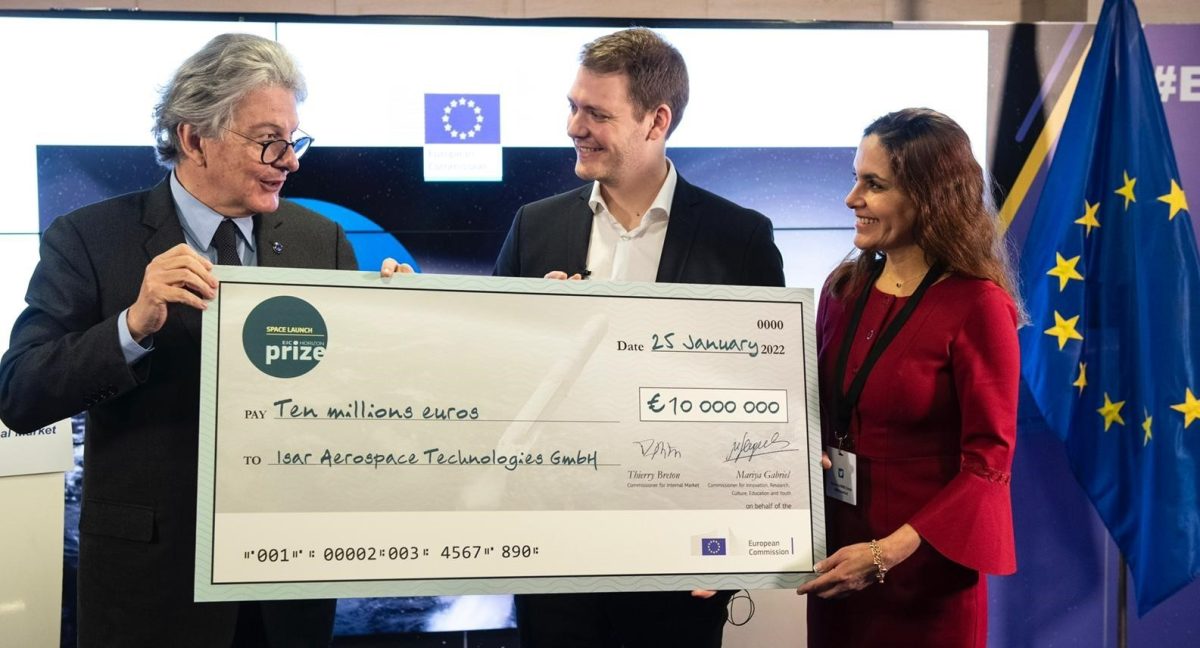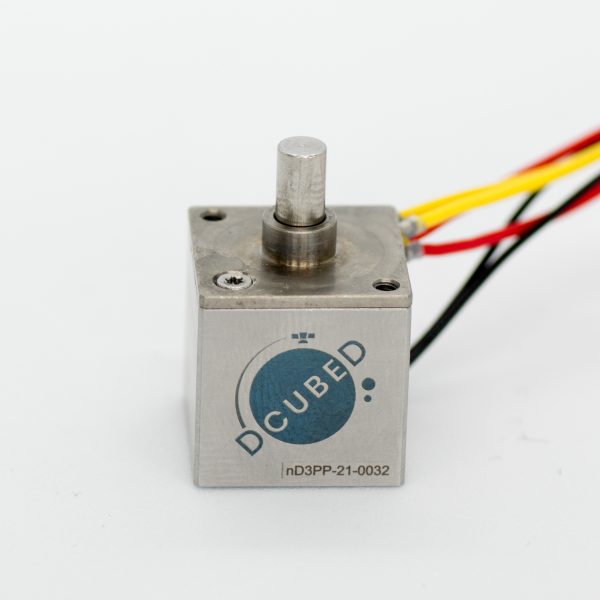The time had finally come on January 13: With the launch of the Falcon 9 rocket by SpaceX, Dcubed put its technology in space for the first time ever. The Munich spacetech startup develops and sells products such as actuators, which are release mechanisms for deployable structures such as antennae or sails.
“You can think of them like an umbrella that’s folded up to begin with and then, when it’s needed, unfolds. Our first product, an actuator, is basically the button that triggers the unfolding,”
explained Thomas Sinn, founder and CEO of Dcubed, in an interview with Munich Startup. The product with the name Nano Pin Puller nD3PP was part of the mission of Fossa Systems, a company from Madrid. Fossa Systems launched the first six satellites of its IoT constellation and demonstrated its PocketPod deployer for the first time. The deployer uses the Nano Pin Puller to open the pod and release the payload. With the successful activation of the four Pin Pullers, Dcubed gained flight experience and put its products on the next and highest level of technology readiness, TRL 9.
The launch also included an in-orbit demonstration mission (IOD) of the Space Selfie Stick by Dcubed and of the Dcubed Nano Release Nut in order to demonstrate their functionality in a space environment. The IOD mission is part of the SWIFT satellite mission of the Polish spacetech company SatRevolutions.
OroraTech was also on board the SpaceX rocket
Dcubed wasn’t the only Munich startup that managed to get a spot on the SpaceX flight: OroraTech, which is working

on an early warning system for extreme weather, sent its first own satellite into space with the mission. The Munich company’s satellite, which is roughly the size of a shoebox, will now orbit the earth at a distance of approximately 525 kilometers and take high resolution thermal images of the earth’s surface. Using AI-based software, these images will be analyzed directly in space and then sent to earth. This is how OroraTech plans to significantly reduce the time period between fire recognition and fire alarm from two hours to just a few minutes.
“With our technology, we detect both mid-wave and long-wave infrared radiation from a great distance,”
explained Thomas Grübler, CEO and co-founder of OroraTech.
“We analyze the collected data in orbit with our GPU accelerated onboard processing module, which allows us to detect characteristic temperature signatures in space. Our AI-based software ensures that clearly recognized forest fires are reported immediately.
The satellite that just launched is to be followed by others in the fourth quarter of 2022. In late 2023, a constellation of a total of eight CubeSats should be in sun-synchronous orbit. Over the long term, the aim is for an entire swarm to deliver data points and meaningfully supplement existing data, for example from Copernicus, the European earth observation program. There is future potential for the satellites by OroraTech to also detect other activities in addition to forest fires. An example is gas flaring, the targeted burning of associated gas, or the evaporation of water from the ground. Even the thickness of oil films on water is something the spacetech startup wants to one day be able to detect from orbit.
Isar Aerospace wins EU prize of 10 million euros
There was also reason to celebrate for Isar Aerospace in January: The company that sells launch vehicles with a focus on small and medium-sized satellites won the EIC Horizon Prize “Low-Cost Space Launch” awarded by the European Commission. The spacetech startup plans to use the prize of 10 million euros for additional investment in capacities for research and development as well as in testing and launch infrastructures.

Daniel Metzler, CEO and co-founder of Isar Aerospace, elaborated during the awards ceremony at the 14th European Space Conference in Brussels:
“I’m so proud! Winning the EIC Horizon Prize is not only a major success for the Isar Aerospace team and proof of how much we’ve already achieved, but also underscores the confidence that the European Commission has in us.”
The production of Spectrum, a two-stage launcher by Isar Aerospace, is continuing as planned: The Munich company has already successfully built its own vertical, integrated production plant and is now working on successfully completing important tests. As soon as these milestones have been reached, the company sees nothing stopping their first test flight in late 2022.

